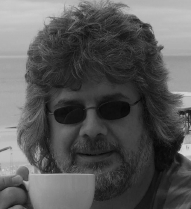It’s so much fun to get to know story practitioners through this Q&A series, of which this is the 18th entry. This one is with Ron Donaldson, with whom I became familiar through the Golden Fleece group. See his bio and photo below. His Q&A will appear over the next five days.
 Bio of Ron Donaldson: Ron has spent the last 28 years working for various government departments in England, including Customs and Excise, Nature Conservancy Council and English Nature. Starting off in IT/IS, he has spent the last 10 years as a “cognitive edge” practitioner on an internal-consultant basis, facilitating story-based workshops and giving advice, guidance and training, in “all things narrative,” to a wide variety of projects and initiatives.
Bio of Ron Donaldson: Ron has spent the last 28 years working for various government departments in England, including Customs and Excise, Nature Conservancy Council and English Nature. Starting off in IT/IS, he has spent the last 10 years as a “cognitive edge” practitioner on an internal-consultant basis, facilitating story-based workshops and giving advice, guidance and training, in “all things narrative,” to a wide variety of projects and initiatives.
Ron calls his particular role that of a knowledge ecologist (see Q&A for more on this) and last month he became a self employed consultant. He is currently developing and actively looking for a portfolio of interesting projects/work.
His new blog and website is “the ecology of knowledge”. Here he regularly explores his interests in story, community and complexity.
He is one of the first practitioners in the UK to work with and be able to demonstrate SenseMaker, the new Cognitive Edge narrative software tool.
Q&A with Ron Donaldson (Question 1):
Q. How did you initially become involved with story/storytelling/narrative? What attracted you to this field? What do you love about it?
Q: Back in 1998 Dave Snowden introduced us to his newly developed approach to gathering and making sense of knowledge. As he trained us in the principles and methods of what would become Cognitive Edge, he told us hugely engaging and highly memorable stories about water engineers, taxi drivers and children’s parties.
A: I became fascinated both by the metaphorical meaning and the power of such stories and thought, “I wonder if I could do that for stories related to nature conservation.” I found myself avidly reading books and scouring the web for everything remotely connected to story, community and complexity theory.
I guess it took some courage at first to try out these new methods as serious business tools, but every time I did I came back more and more enthused, as I realised this was so much more productive than my previous approaches of systems analysis and process modelling, but it was the engagement side that surprised me most. People would visibly become friendlier with each other; hardened pessimists would join in and never complain; each time I talked about the approach it would trigger another storytelling initiative or invite for me to get involved.
I loved the fact that using narrative was/is seen as a quirky and alternative approach yet it is based on the most tried, tested and simple to carry out methods available. Nothing excites me more than facilitating a group to tell their stories and watching their different perspectives merge and re-emerge as they make sense of the material as a group.
I now keep a regular watching eye on a wide range of blogs in order to learn that extra nugget about how the mind works and which synapses or hormones are responsible for that feeling of community, or how to structure the perfect story with its archetypal themes and characters. But I am also mindful of the fact that stories like communities are much greater than the sum of their parts, and I might spend my time better reading, listening, and watching good stories than following such a reductionist path in a constant search for each and every component part.
